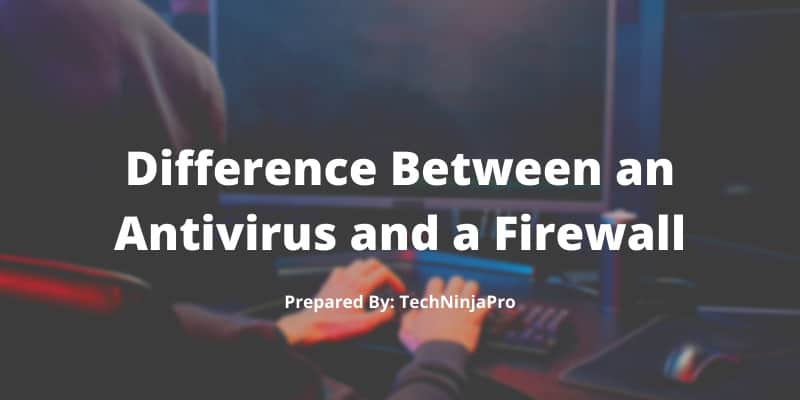In the realm of cybersecurity, Firewall and Antivirus are two words used interchangeably. Both are used to protect the software and hardware of a system. In comparison, both firewall and antivirus applications are intended to secure a network of PCs from internal and external threats. However, there are fundamental differences between a firewall and antivirus software. One of the key differences between antivirus and firewall is that antivirus is a software app, while a firewall can be hardware or software or both.
Most people do not know the difference between a firewall and antivirus. However, people need to know that there is a different vulnerability between the two. Firewalls help control network traffic by acting as a barrier for incoming internet traffic, whereas antiviruses protect systems against internal security with protection systems.
The key emphasis of firewalls is inspecting information that flows from the internet to the system, while that of antiviruses is examining malicious programs through procedural steps that include identifying, detecting, and removing. In this blog, TechNinjaPro will explain further the difference between an antivirus and a firewall.
What is a Firewall

A firewall is hardware or software or a combination of both to secure and protect a private computer or a network of systems. This protection is achieved by allowing legitimate internet traffic and filtering all unauthorized users from accessing private networks and computers. A firewall in a PC is a type of cybersecurity tool for information security by detecting and blocking out all attempts at unsolicited access. A firewall acts as the first line of defense in network security and blocks data packets that do not conform to its set of rules.
Pros
- It prevents hackers and remote access.
- It protects data
- It makes sure better security and privacy
- It protects from Trojans
- A network-based firewall can protect multiple systems, while an operating system-based firewall can protect individual systems.
Functions of a Firewall
- A firewall acts as an application proxy, commonly referred to as an application-level gateway.
- The key function of a firewall is packet filtering.
- Management functions.
- DPI, Deep packet inspection, and firewalls.
List of Firewalls
- Checkpoint
- Fortinet
- Sophos
- CISCO
- Palo Alto
- Watchguard
- Forcepoint
- Juniper
- Fortinet
What is Antivirus

An antivirus is a software app installed to protect it from malicious viruses and malware from the internet and external sources. A firewall cannot protect a PC from a malicious virus attack, which might corrupt or disrupt the system. Hence, installing an antivirus app on PCs is always suitable to take care of this security aspect.
Pros
- It blocks spam and ads
- It protects from viruses and their transmission
- It provides defense against hackers and data thieves
- It protects your private data
- It also provides firewall protection from phishing attacks and spyware
Functions of Antivirus
An antivirus app works on the three-step principle mentioned below:
Detection: An antivirus detects a virus or an attempt to infect the system with a malicious virus that can create some damage to the system.
Identification: An antivirus then tries to identify the virus, type of virus, and its characteristics.
Removal: After detecting and identifying a virus, an antivirus removes the virus from the system. It can also quarantine the virus so that it can create no further harm.
Difference Between an Antivirus and a Firewall

Firewalls and antiviruses are two different cybersecurity tools for securing the systems. Now, let’s have a look at the difference between antivirus and firewall.
Despite many antivirus and firewall differences, for a comprehensive and robust security system to be in place, most businesses go in for the installation of both tools to plug all vulnerabilities.
Conclusion
From the above antivirus and firewall comparison, it is much clear that both are essential cybersecurity tools, and when used in tandem, they can have a significant benefit in protecting a system network from multiple threats. Antivirus and firewall are both seemingly similar that offer a mechanism to protect a system from internal and external threats.

